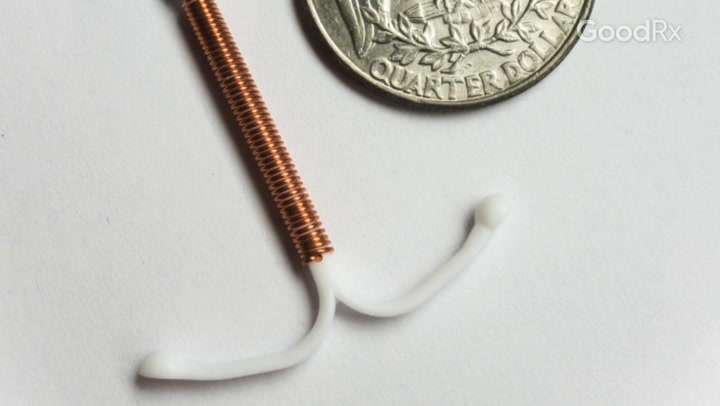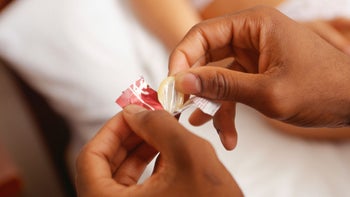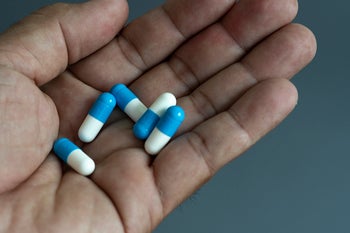
Why Does It Burn During Sex?
Key takeaways:
Many people experience burning during sex. It can sting in the vagina or in the area around the vagina.
Burning during sex can be caused by different things. Vaginal dryness is one of the most common.
If you’re experiencing burning during sex, talk to your gynecologist or other healthcare professional. They can help treat any underlying conditions and help you find ways to reduce the pain.

If you feel burning when you have sex, it can be upsetting — and painful. It can definitely get in the way of experiencing pleasure. Burning often happens because there’s not enough lubrication in your vagina. But there may be other causes as well.
Here, we’ll cover the causes of burning during sex — and what steps you can take to treat it.
What does burning during sex feel like?
Burning during sexual intercourse can feel like stinging, burning, or fiery sensation. You may feel it inside, on the walls of your vagina. Or you may feel it on your vulva, the outside part and entrance to your vagina. The burning can be mildly irritating or extremely painful.
It can happen before, during, or after sexual penetration. You may experience it once in a while or more often.
There are other types of pain besides burning that can occur during sex. About 3 in 4 women experience some type of pain during sex, also called dyspareunia. Pain that isn’t a burning sensation can feel more like a pain that is:
Sharp
Aching
Cramping
Stabbing
What does vaginal dryness feel like? Read about the symptoms and how to treat it.
Is perimenopause causing your vaginal dryness? Read about vaginal estrogen and other hormone therapies for perimenopause.
What lube is best for you? It may be personal preference, but these tips can help you choose the best one for you.
Some women may experience pain and burning together.
What causes burning during sex?
There are many reasons you may feel a burning sensation during sex. Here are some of the more common causes.
1. Vaginal dryness
Your vagina makes natural lubrication to keep it moist and reduce friction during intercourse. Vaginal dryness develops when your body makes less of that natural lubrication. That can cause friction during sex. Friction can irritate your vaginal tissues. This can lead to inflammation, pain, and burning sensations.
Read more like this
Explore these related articles, suggested for readers like you.
Vaginal dryness is more common in people experiencing perimenopause and menopause. During this period of time, your body makes less estrogen. Lower estrogen levels can lead to vaginal dryness.
Other reasons for vaginal dryness include:
Recent childbirth
Nursing
Some hormonal birth control
Hormonal disorders like polycystic ovary syndrome (PCOS)
Cancer treatments
Certain medications
2. Vaginal infections
If you have an infection in or around your vagina, the tissue may get inflamed and irritated. That can cause burning during sex. Infections that can cause burning include:
3. Skin conditions
Certain skin conditions can affect the vulva, the skin around your vagina. These conditions can cause skin irritation or inflammation. This may lead to burning around the opening of your vagina during sex.
Some people with psoriasis or other skin conditions may have flare-ups in the genital area. This can also cause burning during sex.
4. Contact dermatitis
It’s also possible to get contact dermatitis in the genital area, which can cause a burning sensation during sex. Contact dermatitis is a skin rash that can be triggered by contact with:
Perfumed soaps
Lubricants
Douches or other vaginal cleansers
If you develop a rash from using latex condoms, you can choose non-latex condoms made from polyurethane or polyisoprene instead.
5. Vulvodynia
Vulvodynia is the term for pain that affects the vulva. The pain may come and go, or you may feel it all the time. It’s usually considered vulvodynia if you have pain for 3 months and if there isn’t another known cause, like a vaginal infection or a skin disorder.
It’s not entirely clear what causes vulvodynia. But some theories suggest that it may be related to damaged nerves, other nerve issues, or inflammation of the vulva.
Here are some other symptoms people with vulvodynia may have:
Irritation
Rawness
Aching
Soreness
Throbbing
Swelling
How serious is burning during sex?
Most causes of burning during sex aren’t a sign of a serious health problem. Burning is often due to dryness and irritation.
But if you have an infection, such as an STI or bacterial vaginosis, you do need to treat it so it doesn’t get worse and potentially cause complications. And it’s important to treat skin conditions to provide relief — and so they don’t get inflamed or infected.
But burning during sex can be serious in another way. It can affect your mental health and sex life. And that may affect your mood and your relationships. Treatment can help you have the amount of sexual activity you desire.
How can you treat burning during sex?
Burning during sex isn’t something you have to live with. There are different ways to treat it, depending on what’s causing the burning sensation. Here are your best treatment options.
Yeast infection
You can treat a yeast infection with over-the-counter (OTC) antifungal medication. You can also see a healthcare professional to get a prescription for an oral antifungal medication.
Bacterial infections and STIs
Bacterial vaginosis and STIs need to be treated with prescription medications. See a healthcare provider to get diagnosed and treated for the infection.
Vaginal dryness
Vaginal dryness can often be treated with products that add moisture to the vagina. There are two general types of products you can buy OTC that can help with vaginal dryness:
Lubricants (lubes): A personal lubricant is a liquid or gel that you use during sex to reduce friction. Before penetration, apply lube to the penis or condom (after it’s on the penis). Lube can also be applied to the vaginal area. It can also be helpful to put lube on a sex toy like a dildo.
Vaginal moisturizers: These are gels, creams, or suppositories that you insert in the vagina. They help the vagina maintain moisture. Moisturizers work best when used a few times a week. They’re not meant to be used as a lubricant during sex. Examples of moisturizers are Replens and K-Y Liquibeads.
Perimenopause or menopause dryness
For people in perimenopause or menopause, vaginal dryness can also be treated with hormonal treatments. They are available with a prescription, so talk to your OB-GYN or primary care provider about your options.
Two general types of hormone treatments include:
Vaginal estrogen: Estrogen is applied directly to the vagina to help restore some of your natural lubrication. It comes in a cream, vaginal ring, or tablet you insert in the vagina.
Hormone replacement therapy (HRT): HRT is taken to replace reproductive hormones that decline with age. It can be taken by mouth, with a skin patch, by injection, and in other ways. It’s a good option to treat vaginal dryness as well as night sweats and hot flashes.
Skin conditions
If you have a skin condition like psoriasis, talk to your dermatologist about your vaginal symptoms. You may need different treatments to treat skin irritation in the genital area because the skin is more sensitive there.
Contact dermatitis
If you get contact dermatitis, it will usually go away within a week or two. You may be able to use anti-itch creams or other medications. But talk to your OB-GYN before applying anything to the skin around your vagina.
The best way to stop contact dermatitis is to avoid products that irritate your skin.
Vulvodynia
If you think you may have vulvodynia, see an OB-GYN. They can diagnose the condition and discuss your treatment options.
There are a range of treatment options for vulvodynia, including:
Numbing creams
Hormone creams
When should you see a doctor about burning during sex?
Some causes of burning may need to be treated by a healthcare professional. See your OB-GYN or primary care provider if you experience any of the following:
You’ve tried a few solutions on your own, and they don’t relieve the burning.
You’re in perimenopause or menopause and want to explore using hormone therapy to treat vaginal dryness.
The burning is severe or lingers long after sex is over.
You experience burning every time you have sex.
If for any reason, you feel the burning is affecting your sex life, your self-esteem, or your mental health, it’s important to seek help so you can find a treatment that relieves your pain.
The bottom line
If you feel burning during sex, you’re not alone. It happens for many different reasons. Don’t ignore it, though, if it keeps happening or if it’s severe. It can interfere with your sex life. And sometimes it’s a sign of an infection or other health condition. A healthcare professional can help diagnose the cause of the burning and help you find ways to treat it.
Why trust our experts?



References
Abraham, C. (2024). Experiencing vaginal dryness? Here's what you need to know. American College of Obstetricians and Gynecologists.
American Academy of Dermatology Association. (n.d.). How can I treat genital psoriasis?
American College of Obstetricians and Gynecologists. (2024). Vulvodynia.
American College of Obstetricians and Gynecologists. (2024). When sex is painful.
Contraception Report. (1997). Latex allergy and contraception.
Hill, D. A., et al. (2021). Dyspareunia in women. American Family Physician.
Kendall. (2011). What should I do if my partner or I am allergic to latex condoms? Planned Parenthood.
National Vulvodynia Association. (n.d.). Vulvodynia treatments.
National Vulvodynia Association. (n.d.). What causes vulvodynia?
North American Menopause Society. (n.d.). Vaginal dryness.
Planned Parenthood. (n.d.). Chlamydia symptoms.
Planned Parenthood. (n.d.). What are the symptoms of herpes?
Tayyeb, M., et al. (2023). Dyspareunia. StatPearls.
Wahl, K. J., et al. (2021). Dyspareunia in their own words: A qualitative description of endometriosis-associated sexual pain. Sexual Medicine.




























